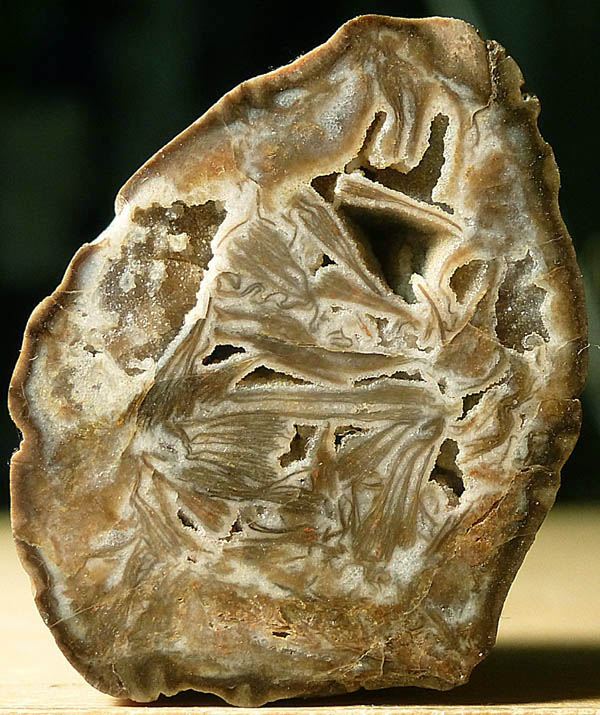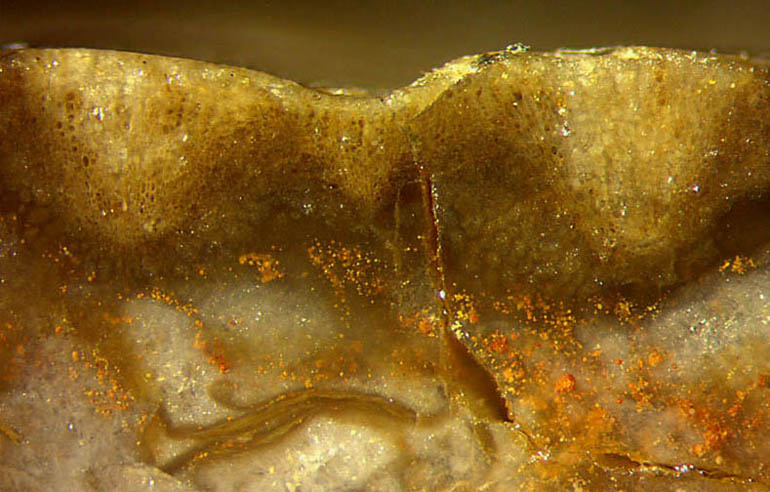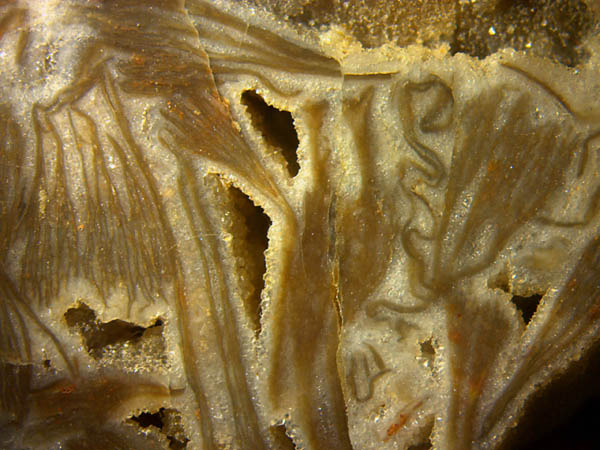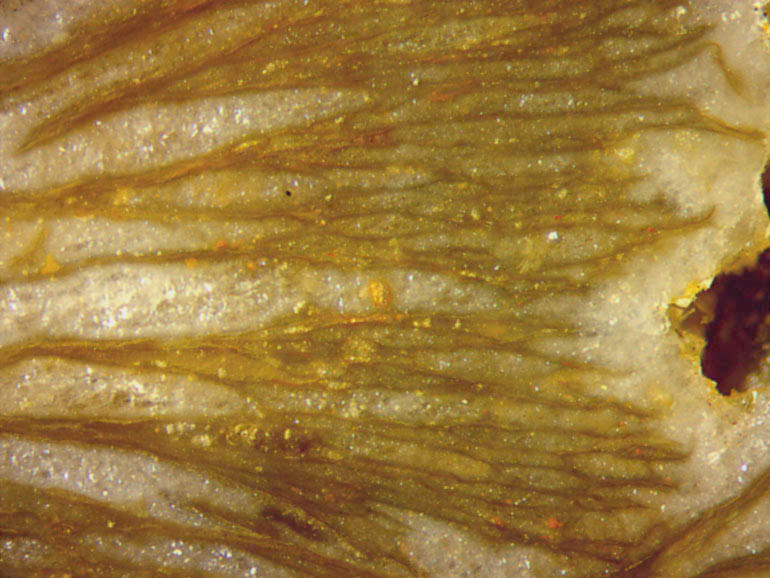Permian or Mesozoic stem
with enigmatic structure
 This tiny stem
cross-section of a woody plant shows a confusingly complex structure
which might deter even curious people from trying to understand what
they see. If it would hang in a gallery among absurd
artworks, people would probably flock there and stand in silent
contemplation.
This tiny stem
cross-section of a woody plant shows a confusingly complex structure
which might deter even curious people from trying to understand what
they see. If it would hang in a gallery among absurd
artworks, people would probably flock there and stand in silent
contemplation.
Fig.1: Stem
cross-section with narrow wood ring. Height of the section 25mm.
There
is something in the chaos, not readily seen in Fig.1, which offers a
connection to familiar notions: What looks like a mere
darkened margin reveals quite different structures:
The whole circumference is beset with a narrow seam of coniferous-type
wood, more or
less distinctly arranged as short "wood wedges" in some places
(Fig.2), similar to those
of some Upper Carboniferous conifer as seen in Fossil
Wood News 27.
Not much of the pith has remained here but its wide cells exceeding
80Ám differ clearly from the much smaller cells of the wood. Same
as with the mentioned conifer but less well seen here, there
are even smaller cells of about 20Ám
at the very tips of the wood wedges.

Fig.2 (left):
Wood wedges with cells in radial files next to
remains of central pith (dark), deformed fragment below. Detail of
Fig.1, width 3.4mm.

With pith and wooden margin resembling those
of a small conifer stem, the inner structure (Fig.1) is all the more
enigmatic. The lack of symmetry may be due to partial decay
and
scatter of the components but one can hardly imagine how they should be
re-arranged to make sense. So
we are left with the option to
have a look at the peculiar debris in Fig.3.
Fig.3 (right): Disarranged and deformed components of some elusive
structure formerly
present inside the small stem of Fig.1. Width
11mm.

Fig.4 (left): Detail of Fig.3 left (turned), same scale as
Fig.2 but no wood-like cells seen. Width 3.4mm.
The components seem to
consist of interconnecting branches, thus resembling
a tissue with big
elongate cells in some places, as in Fig.4 below. The
combination of wood ring with something inside is found with seed ferns.
Some similarity
between parts within this narrow stem and components of conducting
strands of much larger Medullosa
stellata [1] has been noticed [2]. Nevertheless, the
present sample does not seem to fit in anywhere. Hence, no
interpretation is proposed
here.
Repeatedly found Tempskya
in the same gravel pit might indicate a Mesozoic age of
this fossil but a Permian age cannot be excluded.
Sample: found by Mathias Aehlig, Coswig,
in the gravel pit at Ottendorf-Okrilla, kept in the own collection
under the label O-O 1.1.
H.-J.
Weiss 2019
[1] U. Dernbach, W.D.
Tidwell: Secrets of
Petrified Plants, D'ORO 2002, p.112.
[2] Hans
Steur, Ellecom:
Private communication.
|

|
 32 32 |

 32
32 This tiny stem
cross-section of a woody plant shows a confusingly complex structure
which might deter even curious people from trying to understand what
they see. If it would hang in a gallery among absurd
artworks, people would probably flock there and stand in silent
contemplation.
This tiny stem
cross-section of a woody plant shows a confusingly complex structure
which might deter even curious people from trying to understand what
they see. If it would hang in a gallery among absurd
artworks, people would probably flock there and stand in silent
contemplation.



 32
32